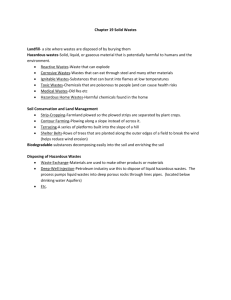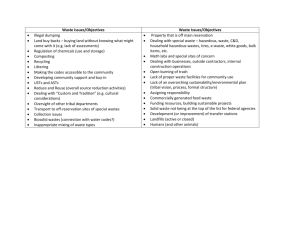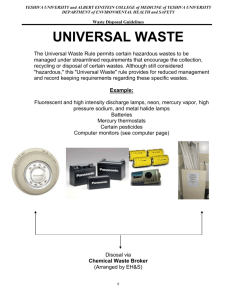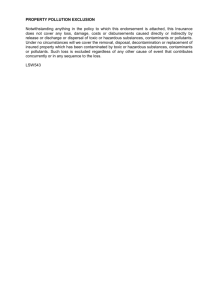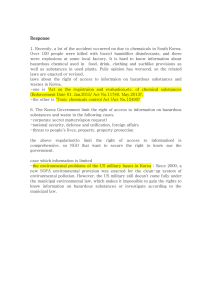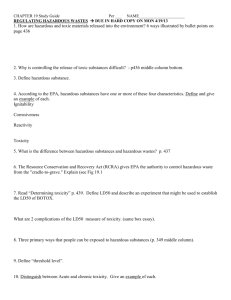1. What obligations does your Government have to ensure... information under international, regional and national laws? Please provide, in
advertisement
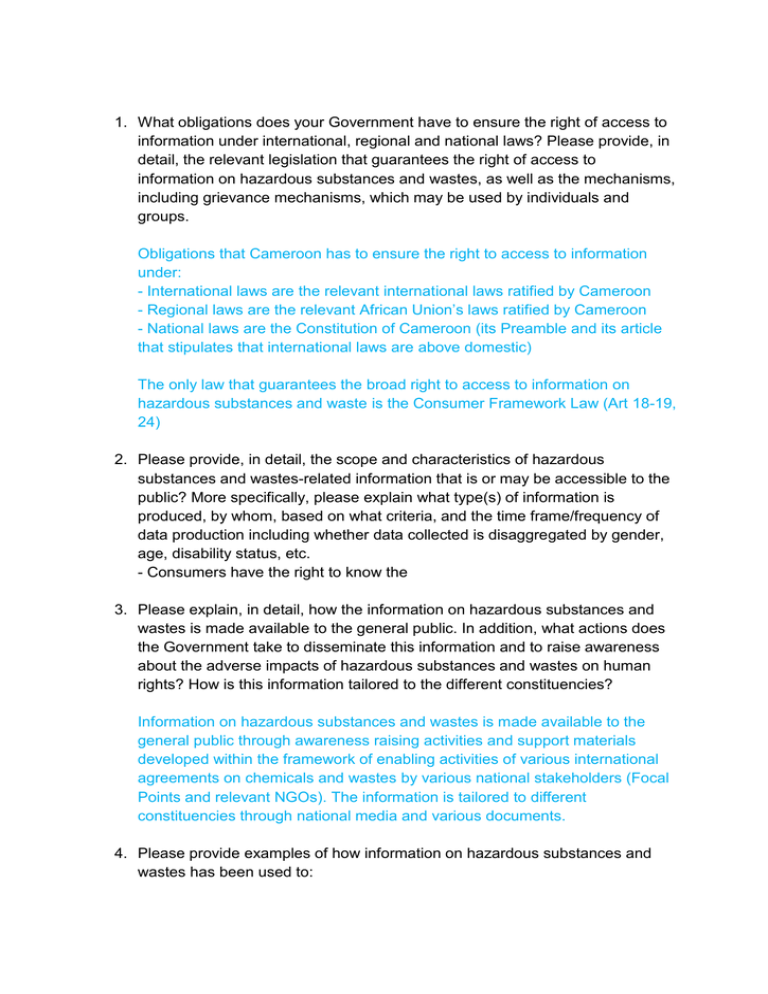
1. What obligations does your Government have to ensure the right of access to information under international, regional and national laws? Please provide, in detail, the relevant legislation that guarantees the right of access to information on hazardous substances and wastes, as well as the mechanisms, including grievance mechanisms, which may be used by individuals and groups. Obligations that Cameroon has to ensure the right to access to information under: - International laws are the relevant international laws ratified by Cameroon - Regional laws are the relevant African Union’s laws ratified by Cameroon - National laws are the Constitution of Cameroon (its Preamble and its article that stipulates that international laws are above domestic) The only law that guarantees the broad right to access to information on hazardous substances and waste is the Consumer Framework Law (Art 18-19, 24) 2. Please provide, in detail, the scope and characteristics of hazardous substances and wastes-related information that is or may be accessible to the public? More specifically, please explain what type(s) of information is produced, by whom, based on what criteria, and the time frame/frequency of data production including whether data collected is disaggregated by gender, age, disability status, etc. - Consumers have the right to know the 3. Please explain, in detail, how the information on hazardous substances and wastes is made available to the general public. In addition, what actions does the Government take to disseminate this information and to raise awareness about the adverse impacts of hazardous substances and wastes on human rights? How is this information tailored to the different constituencies? Information on hazardous substances and wastes is made available to the general public through awareness raising activities and support materials developed within the framework of enabling activities of various international agreements on chemicals and wastes by various national stakeholders (Focal Points and relevant NGOs). The information is tailored to different constituencies through national media and various documents. 4. Please provide examples of how information on hazardous substances and wastes has been used to: monitor human rights affected by hazardous substances and wastes (e.g., rights to health, safe and healthy working conditions, water and sanitation, health , environment, etc.); No case of my knowledge protect the human rights of individuals and groups from the adverse impacts of hazardous substances and wastes; The pesticide national registration system in place can been seen as evidence of protection of human rights of individuals and groups (farmers) from the impacts of hazardous pesticides. The registration committee relay on information provided by the manufacturer of pesticide formulation and active ingredient to register, de-register or deny registration. promote other human rights (e.g., rights to health, safe and healthy working conditions, water and sanitation, healthy environment, etc.); No case of my knowledge prevent potential human rights violations caused by the improper management of hazardous substances and wastes; No case of my knowledge and hold perpetrators accountable and seek remedy for victims. No case of my knowledge 5. Which businesses are required to provide information on hazardous substances and wastes (e.g., size, sector, operational context, ownership and structure)? Please explain, in detail, the obligations of these businesses, have with regard to the type of information they are obliged to provide, to whom the information is made available, and what measures may be taken if businesses fail to meet these obligations. Agrichemicals business and the distribution chain in respect of the implementation of the FAO International Code of Conduct; Pharmaceutical industry, 6. When does the Government limit the right of access to information on hazardous substances and wastes? Are these criteria on limitation provided by law? Who has the authority to make decisions on the disclosure/nondisclosure of such information? No case of my knowledge 7. How does the Government ensure that the right of access to this information is fulfilled while also respecting the confidentiality of business information? The government is just embarked on this issue through its ongoing endeavor to implement GHS within SAICM national process. If available, please indicate relevant cases and attach copies of relevant judgements.
